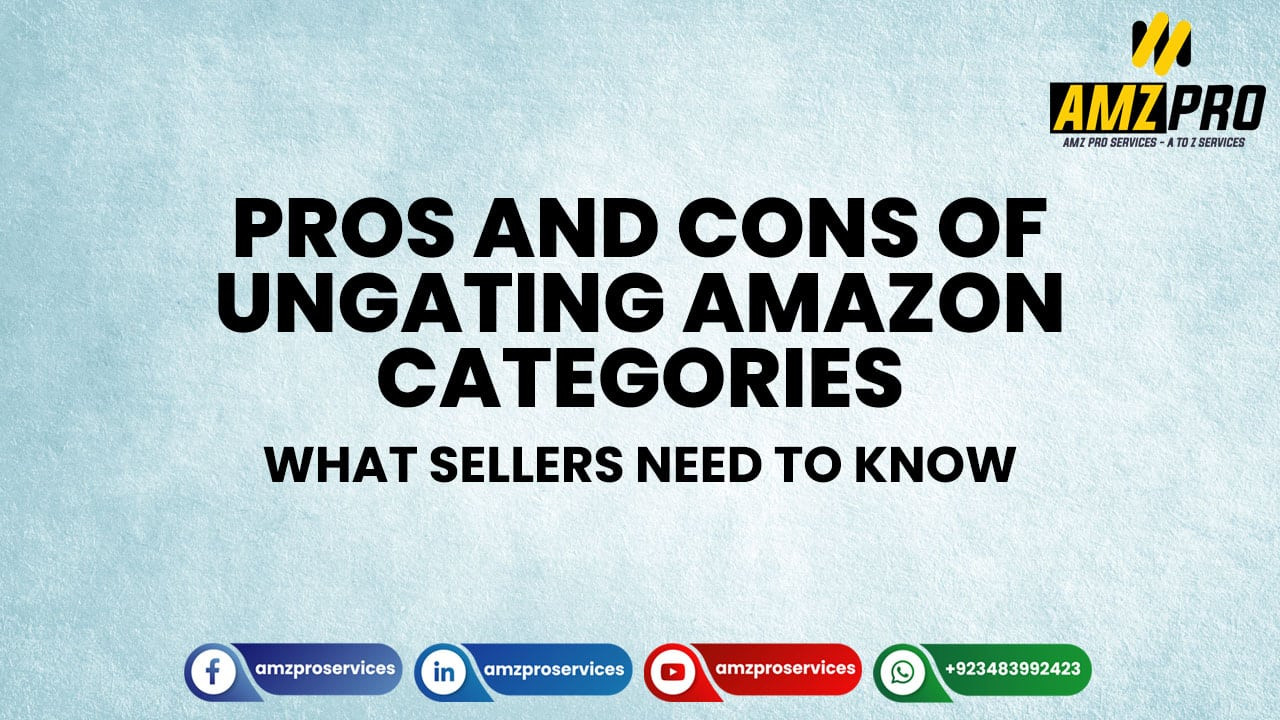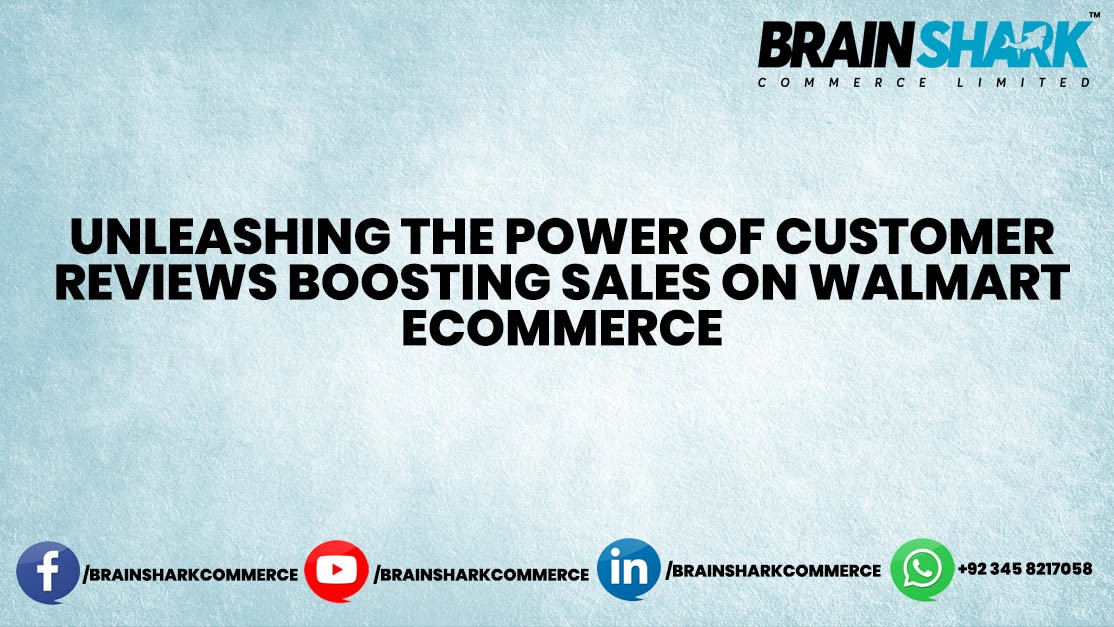Pros and Cons of Ungating Amazon Categories: What Sellers Need to Know
Selling on Amazon can be a profitable business for many sellers. However, gaining approval to sell in restricted categories can be a challenge. Amazon category ungating is the process of obtaining approval to sell in restricted categories on the Amazon platform. While ungating categories can provide several advantages, it's important to consider the potential drawbacks as well. In this blog post, we will discuss the pros and cons of ungating Amazon categories.
Pros of Ungating Amazon Categories:
Increased Sales Opportunities
The primary advantage of ungating Amazon categories is the increased sales opportunities. Restricted categories often have high demand and limited competition, which can lead to higher profits for sellers. Ungating categories can also help sellers expand their product offerings and reach new customers.
Improved Reputation and Credibility
Ungating Amazon categories can help improve the seller's reputation and credibility on the platform. Approval to sell in restricted categories can signal to customers that the seller has met Amazon's strict requirements and has a high-quality product offering. This can lead to increased customer trust and loyalty.
Access to Exclusive Products
Many restricted categories on Amazon contain unique and exclusive products that are not available in other categories. Ungating these categories can give sellers access to these products, which can help differentiate them from competitors and increase their sales opportunities.
Potential for Increased Profit Margins
Restricted categories on Amazon often have higher profit margins than other categories. This is due to the limited competition and high demand for products in these categories. Ungating these categories can lead to increased profits and improved business success.
Cons of Ungating Amazon Categories:
Increased Competition
Ungating Amazon categories can also mean increased competition. Once a category is ungated, more sellers may enter the category, which can lead to increased competition and reduced profit margins. Sellers should carefully consider the potential impact of increased competition before pursuing category ungating.
Higher Requirements
Ungating Amazon categories often require meeting higher requirements than other categories. This can include higher product quality standards, documentation requirements, and seller performance metrics. Meeting these requirements can be time-consuming and costly for sellers.
Additional Costs
Ungating Amazon categories may also come with additional costs. This can include fees for applying for category ungating, costs for additional documentation, and the cost of meeting higher product quality standards. Sellers should carefully consider the potential costs associated with category ungating before pursuing it.
Time-Consuming Process
The category ungating process can be time-consuming and lengthy. Sellers should be prepared to spend significant time and resources on the application process, including gathering the required documentation, meeting Amazon's requirements, and waiting for the application to be reviewed.
Considerations for Ungating Amazon Categories:
It's important to note that the pros and cons of ungating Amazon categories may vary depending on the specific category and the seller's business goals. Some categories may have higher profit margins but also higher requirements, while others may have lower profit margins but less competition. It's essential to conduct thorough research on the category requirements, competition, and customer demand to make an informed decision.
Furthermore, sellers should also consider the potential impact of category ungating on their overall business strategy. Ungating Amazon categories can be a great way to expand product offerings and increase sales opportunities. However, it's important to ensure that the category fits into the seller's overall business strategy and complements its existing product offerings.
Moreover, sellers should also consider the potential impact of category ungating on their brand reputation. Meeting Amazon's strict requirements for ungated categories can help improve the seller's reputation and credibility on the platform. However, failure to meet these requirements can have the opposite effect and damage the seller's reputation and credibility.
Alternatives to Category Ungating:
In addition to the pros and cons, it's also essential to consider the potential alternatives to category ungating. For example, sellers may consider expanding their product offerings in existing categories or exploring new sales channels. These alternatives may provide similar benefits without the additional requirements and costs associated with category ungating.
Expanding product offerings in existing categories can be a great way to increase sales opportunities and profits without the additional requirements and costs of category ungating. Sellers can conduct market research to identify new product opportunities in their existing categories and develop a strategy to launch new products.
Exploring new sales channels can also be an effective way to increase sales opportunities without the additional requirements and costs of category ungating. For example, sellers can consider selling their products on other e-commerce platforms or through their own websites. This can help diversify their revenue streams and reduce reliance on Amazon's platform.
Preparing for Category Ungating:
If a seller decides to pursue category ungating, there are several steps they can take to prepare for the process.
- First, sellers should conduct thorough research on the category requirements, competition, and customer demand. This can help them determine if the category is a good fit for their business and develop a strategy to meet the requirements.
- Second, sellers should ensure that their product quality meets or exceeds the requirements for the category. This can involve investing in product improvements, such as improving the packaging or sourcing higher-quality materials.
- Third, sellers should gather all the necessary documentation in advance, including invoices, certificates of authenticity, and product images. This can help expedite the application process and reduce the risk of delays or denials.
- Fourth, sellers should consider hiring a professional consultant or agency to assist with the category ungating process. These professionals have experience navigating the process and can provide guidance on meeting the requirements and submitting a successful application.
Conclusion:
Ungating Amazon categories can provide several advantages, including increased sales opportunities, improved reputation and credibility, access to exclusive products, and potential for increased profit margins. However, it's important to carefully consider the potential drawbacks, including increased competition, higher requirements, additional costs, and a time-consuming process. Sellers should weigh the pros and cons and consider the potential impact on their overall business strategy and brand reputation before pursuing category ungating. By carefully considering the pros and cons, exploring alternatives, and preparing for the process, sellers can make an informed decision and achieve success on the Amazon platform.

